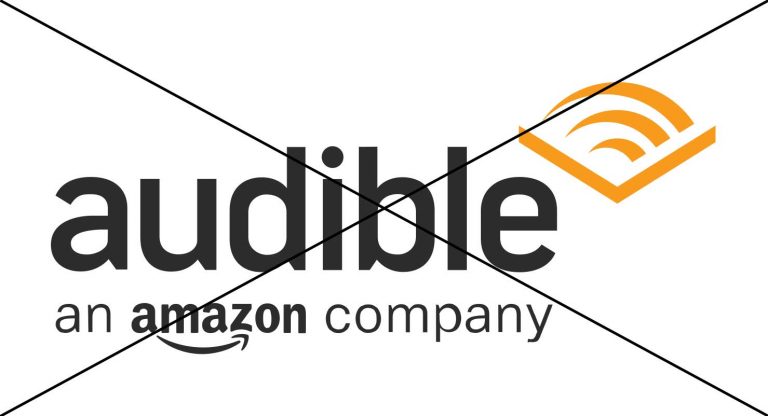What is a Nanodegree? Udacity’s Revolutionary Education Model
Prosperopedia.com’s mission is to provide resources and guidance to our visitors that will help them make good educational and financial decisions. In keeping with that mission, this article about Udacity introduces their Nanodegree opportunities as a way to improve earning potential through “nano”-sized learning models that are the future of technology education.
Education is changing.
Quickly!
The traditional model for higher education and skills training is failing. Going to a four-year university, getting into a bunch of debt, then spending the rest of their lives trying to pay it off, all the while changing careers and majors several times in their search to discover what really gives them fulfillment; that system just doesn’t serve the needs of most people in the 21st Century.
The overall student debt figure for Americans is staggering. We owe collectively close to $1.5 trillion in student loans. That’s just more evidence that the monolithic degree programs offered at universities just don’t work for our current society.
Higher education has long been due for a system that is much more dynamic, much more responsive to a rapidly changing learning and career landscape, especially when it comes to developing technology skills. Technology boot camps have sprung up all over the world, helping motivated members of the workforce transition from unfulfilling, underpaying careers into higher paid, higher skilled jobs that involve doing everything from user experience design to database programming.
Maybe you’re interested in cashing in on the trend yourself.
You’d be wise to consider this alternative to college (or any of the other alternatives that won’t have you bound down with crushing debt when you’re done without much help from the degree), especially if you have a propensity towards technical subjects. If you want to find get a quick gauge of how much you’d be inclined towards a technical program, you can use the o*Net Interest Profiler provided by the US Department of Labor.
Introducing the Nanodegree from Udacity
You might have heard people talking about a thing called a “Nanodegree”. The name itself makes it sound a lot like a smaller version of a degree. In fact, that’s what it is. It’s not quite as small as a billionth of a degree (the “nano” prefix denotes one-billionth), but the designation fits, as a Nanodegree takes substantially less time and costs significantly less than going to a university or even a two-year trade school.
The term Nanodegree was created by Udacity to describe each of its technical training programs, which include courses on everything from highly technical programs in artificial intelligence, data science, cloud computing, and software development to business programs that involve analytics.
People who complete Udacity’s Nanodegree programs are given a certificate that is meaningful among companies hiring in the tech world, not only because the curriculum itself is heavily influenced by tech-heavy organizations (curriculum partners) like Google, Amazon, GitHub, Facebook, IBM, and mongoDB, but because the programs are specifically aimed at helping people develop the skills required to fill current gaps that are desperately needing help in the modern job market.
How Much Does a Nanodegree Cost?
Although Udacity does have lots of free courses (almost 200 of them, including some heavy computer science concepts and post-Calculus advanced math), all of their Nanodegrees have tuition associated with them. Nanodegrees tend to be much more thorough than the free courses offered by Udacity.
Nanodegree programs typically cost around $1,000. Many of them are as low as $900, while more intensive ones are more than $1,200 per Nanodegree program.
Udacity’s Nanodegree programs can be financed. Financing is provided through a partner of Udacity’s called Affirm, allowing students to make payments of around $100 per month until the cost of the program is fully paid off. Financing eligibility is determined by doing a quick soft pull (which doesn’t affect your score) on your credit.
How Long Does it Take to Complete a Nanodegree?
Nanodegrees typically take two to four months to complete, with a weekly time commitment of between 5 and 20 hours per week. Most of their programs are self-paced and can be completed on a flexible schedule. However, there are some programs that have deadlines for individual projects as well as a final term deadline which must be adhered to. In situations where the final term deadline cannot be met, students can often request and receive permission to switch over to participate in a subsequent program.
Most of the technical Nanodegree programs require students to have prerequisite knowledge prior to enrolling in a course. Although these prerequisites are not strictly enforced as they might be in a more formal setting at a college or university, where evidence of having taken prerequisites or testing out of them would be required, being successful in a Nanodegree program necessitates either the experience listed in the course prerequisite listing or the willingness to back up and go get that foundational knowledge while taking the course.
For instance, the Data Mining Nanodegree program requires intermediate knowledge of SQL (Structured Query Language, the standard for interacting with databases), Python programming, and ETL (extract, transform, load…another database skillset) in order to be prepared to take the course. Udacity provides Nanodegree program paths that allow students to build up to a particular program through completing prerequisite programs.
Nanodegree Certificates of Completion and Accreditation
Udacity’s Nanodegree programs are not accredited, and they don’t articulate with colleges and universities. Nanodegree certificates of completion demonstrate competencies that are specifically desired by companies that provide input to Udacity about what skills are desired.
Udacity’s Partnership with Georgia Tech and AT&T
A major exception to Udacity’s model of offering independent, self-contained, non-accredited certificates of course completion is a partnership they are doing with Georgia Tech, in which Nanodegree program participants attending Georgia Institute of Technology can receive a Master’s degree in Computer Science by completing approximately 12 Nanodegree courses to receive what’s called the Online Master of Science in Computer Science degree from the Georgia Tech.
This opportunity grew out of AT&T’s use of Udacity to help its workforce hone their technical skills. AT&T ultimately provided funding for the development of the Georgia Tech degree program in conjunction with Udacity, which provides the courses “free” for enrollees of the Georgia Tech online degree program.
Getting Hired with a Nanodegree Certificate
Although Udacity’s Nanodegree programs are not officially accredited (aside from the Georgia Tech partnership mentioned above), they may offer something even more attractive to potential course participants. Udacity partners with tech companies to hire those who complete their programs.
Udacity has an initiative called the Udacity Talent Program, a job finding portal in which Udacity’s preferred employers are connected with those who are completing or have completed Nanodegree programs and are actively searching for jobs. Udacity provides career services in connection with this program.
The Future of Technical Skill Development and Employment
Lean learning programs such as those offered by Udacity through its Nanodegrees have become more popular over the past decade and continue to be the standard for teaching technical information, which moves quickly enough that it’s difficult for traditional schools, which are usually slow-moving and bureaucratic, to adequately teach what needs to be taught. Partnerships between companies like Udacity, coding and technology bootcamps, and other self-serve, lean education opportunities are changing the landscape of education for technical emphases as well as for others.
As the cost of university education continues to be prohibitive, and the returns on that education continue to diminish, this movement towards the Udacity style of education will certainly continue.













